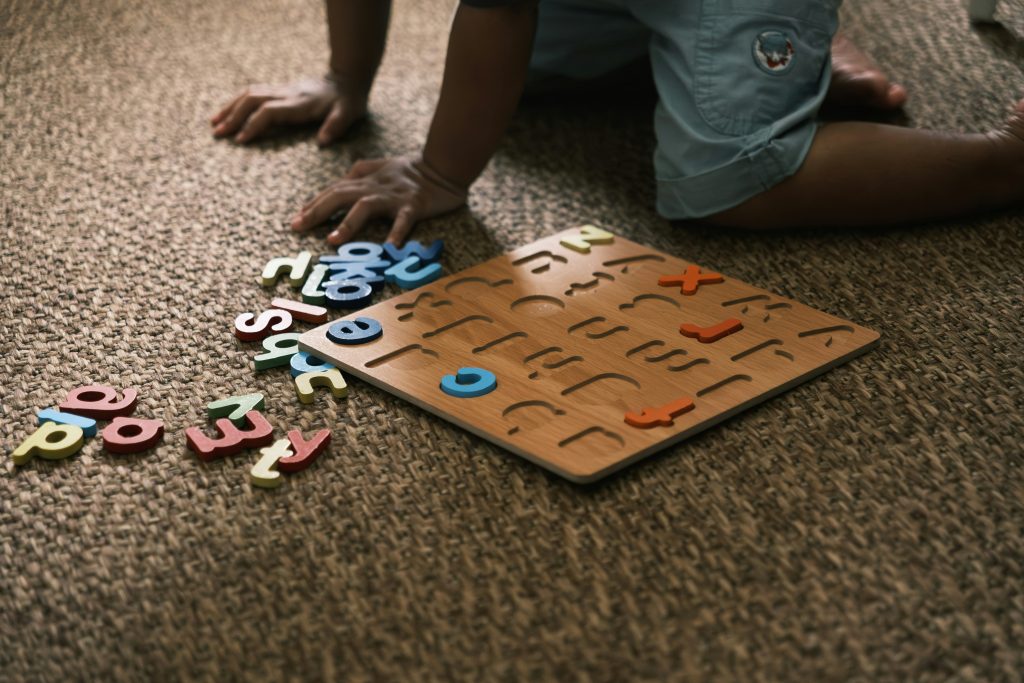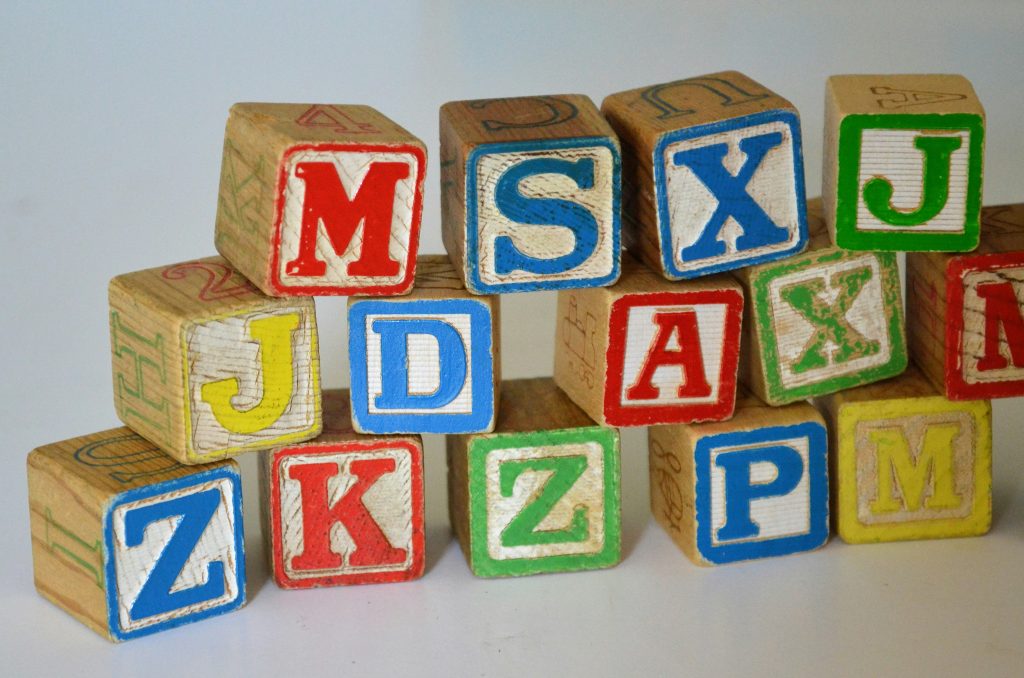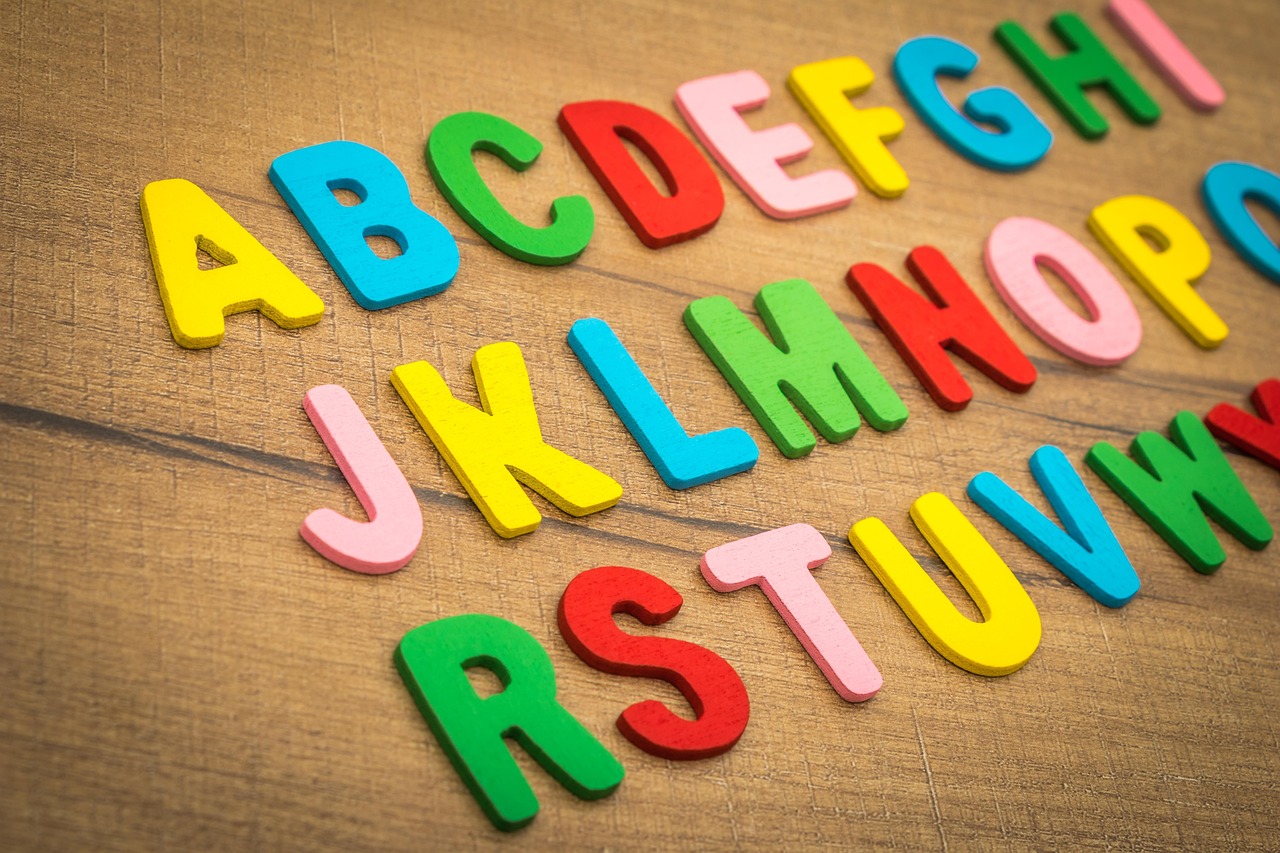Learning the alphabet is one of the first big steps in a child’s educational journey. For kindergarteners, recognizing letters and understanding their sounds lays the foundation for reading and writing. But memorizing letters from a chart can feel boring and overwhelming for little learners.
That’s where ABC games for toddlers and alphabet games for preschool come in. By turning letters into playful activities, children stay engaged while practicing important skills. Games with letters for preschoolers make letter recognition fun, interactive, and memorable, helping your child build confidence as they explore the world of words.
Top Alphabet Games for Kindergarteners
There are numerous ways to make learning the alphabet fun for your kindergartner. Here are some of the best learning games that turn letters into play:
Letter Matching Games
Matching uppercase and lowercase letters or pairing letters with pictures helps children recognize shapes and sounds. This is a great way to explore each letter of the alphabet step by step while improving memory skills.
Alphabet Scavenger Hunts
Turn your home or backyard into a treasure hunt! Ask your child to find objects that start with specific letters. This game encourages exploration while reinforcing letter sounds in real-world contexts.
Musical Alphabet Chairs
Just like musical chairs, but with a letter twist! Place letter cards on chairs and play music. When the music stops, children identify or say the letter on the chair they reach. It combines movement, listening, and learning.
Flashcard Games with Letters and Sounds
Flashcards aren’t just for rote memorization. Play “letter bingo,” “memory match,” or “sound hop” to make learning interactive. These activities help kids learn how to write letters while reinforcing phonics.
Alphabet Puzzles and Board Games
Puzzles and alphabet-themed board games are great for quiet, focused play. As kids fit pieces together or advance on the board, they’re practicing letters, sequencing, and problem-solving, all without feeling like a lesson.
Sensory Letter Activities
Using sand, playdough, or rice trays, children can trace letters with their fingers. These tactile experiences strengthen fine motor skills and help kids remember letter shapes through touch and movement.
Interactive Apps and Digital Alphabet Games
Technology can be helpful when used in moderation. Interactive apps provide engaging visuals, songs, and challenges that keep young learners motivated while they practice letters. These play games digitally reinforce early literacy skills.

Benefits of Playing Alphabet Games
Alphabet games do more than just teach letters; they give your child a head start in reading while making learning enjoyable. One of the biggest benefits is improved letter recognition and phonics skills. By playing with letters in different ways, children learn to identify them quickly and connect them to sounds, which is essential for early reading.
These games also enhance memory and concentration. Activities like matching games, puzzles, or scavenger hunts challenge children to focus and remember details, strengthening their cognitive skills in a playful way.
Alphabet games encourage teamwork and social interaction, too. Many games can be played with siblings, friends, or parents, helping kids practice sharing, taking turns, and communicating.
Finally, these activities make learning fun and reduce screen fatigue. Hands-on games, sensory activities, and interactive play give children a break from screens while keeping them engaged in meaningful cognitive learning experiences.

Tips for Parents and Teachers
Choosing the right games for your child is key to making learning enjoyable and effective. Start by selecting age-appropriate games that match your kindergartener’s skill level. Games that are too easy can get boring, while ones that are too hard may cause frustration.
It’s also important to balance screen time with hands-on play. While interactive apps and digital games can be fun and educational, combining them with tactile activities like puzzles, sensory trays, or scavenger hunts ensures children develop a range of skills.
Finally, incorporate games into daily routines. Short, playful activities during snack time, car rides, or before bed can make letter practice a natural part of the day. Consistency keeps learning fun and helps reinforce skills without feeling like a formal lesson.
Frequently Asked Questions
What are ABC games for toddlers?
ABC games for toddlers are playful activities that introduce young children to letters and sounds, helping them build early literacy skills in a fun, hands-on way.
How can I make learning the alphabet fun at home?
You can use letter matching games, scavenger hunts, sensory trays, flashcards, or interactive apps. Turning letters into games keeps children engaged and motivated.
What are some games with letters for preschoolers?
Examples include musical alphabet chairs, letter puzzles, memory matching games, and alphabet board games. These activities help children recognize letters step by step.
Can these games help children learn how to write letters?
Yes! Sensory activities with sand, rice, or playdough and tracing letters step by step help strengthen fine motor skills and teach proper letter formation.
How often should children play alphabet games?
Short, daily sessions, during snack time, car rides, or before bed, work best. Regular practice keeps learning consistent without feeling like a lesson.
Top Alphabet Games for Kindergarteners
Alphabet games are a fun and effective way to help kindergartners learn letters and sounds. From letter matching and scavenger hunts to sensory activities and interactive apps, these games make early learning engaging, hands-on, and memorable. Consistent play helps children build confidence, strengthen phonics skills, and develop a love for reading.
As a private preschool in Willis, TX, we understand the importance of playful learning in early childhood development. By incorporating alphabet games into daily routines, parents and teachers can create a supportive environment that encourages literacy and social skills.
Looking for ways to make learning letters more engaging for your child? Contact us today to discover fun, hands-on strategies and activities that fit your family’s needs.







